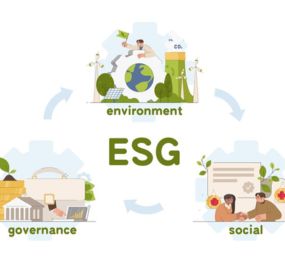ESG and Climate Africa: A Pathway Toward Resilient and Responsible Growth
Africa stands at a pivotal moment in its development journey. As climate change accelerates and global demand for sustainable investment grows, the continent is embracing the principles of Environmental, Social, and Governance (ESG) as a strategic framework to balance growth, equity, and environmental care.
For Africa, ESG is more than a corporate buzzword—it’s a lifeline. The continent is highly vulnerable to climate-related risks like droughts, floods, and heatwaves, despite contributing the least to global emissions. This has pushed many African nations, institutions, and businesses to rethink how growth can be achieved in ways that are socially inclusive, environmentally sustainable, and built on strong governance.
Environmental Stewardship Amid Climate Pressure
Countries such as Kenya, South Africa, and Morocco are investing heavily in renewable energy, water conservation, and sustainable agriculture. The focus is shifting from reactive disaster relief to proactive climate resilience. From solar farms in the Sahel to reforestation programs in East Africa, efforts are underway to protect natural resources and adapt to shifting environmental realities.
Meanwhile, companies are being urged—by both regulators and investors—to measure and reduce their environmental impact. ESG reporting is slowly gaining traction, with more African firms disclosing data on carbon footprints, energy use, and waste management.
Social Responsibility with Community at the Center
Social equity is a key pillar of ESG in Africa. Education access, healthcare systems, job creation, and fair labor practices are deeply interwoven with the continent’s sustainability goals. Impact investors and development partners are increasingly backing projects that combine profit with purpose—like clean energy solutions that empower rural communities or fintech innovations that drive financial inclusion.
Governance: Building Trust and Transparency
Strong institutions and good governance are essential to achieving ESG goals. Many African nations are reforming policies to encourage transparency, tackle corruption, and ensure stakeholder accountability. While progress is uneven, there is growing recognition that sustainable growth cannot thrive without ethical leadership and public trust.
Key Takeaway:
Africa is adopting ESG as a tool for sustainable and inclusive development.
Climate resilience is central, especially due to the continent’s high vulnerability.
Social and governance reforms are gaining ground across industries and governments
The road ahead requires investment, data transparency, and strong partnerships.
Conclusion
Africa’s ESG and climate journey is not without challenges—limited infrastructure, data gaps, and financing barriers remain. But the momentum is growing. With the right partnerships, bold leadership, and community-driven innovation, Africa can turn its vulnerabilities into strengths, setting a powerful example of how emerging economies can lead in sustainability.
Learn more on our website: https://www.leadventgrp.com/events/esg-and-climate-africa-summit/details
For more information and group participation, contact us: [email protected] .
Leadvent Group - Industry Leading Events for Business Leaders!
www.leadventgrp.com | [email protected]
















